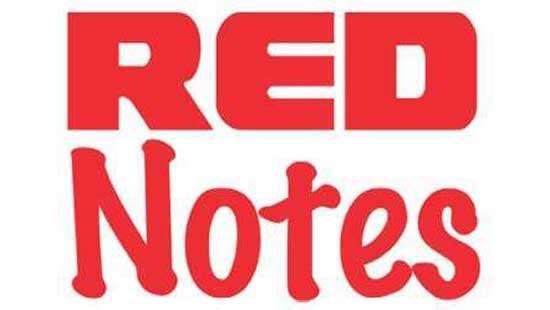17 Oct 2022 - {{hitsCtrl.values.hits}}
Sri Lanka’s economy is sinking deeper and deeper into an economic depression. The working peoples’ day to day lives are breaking down with food inflation on the order of 80% to 90%.
 Yet, over the last three months, since the last great wave of protests that dislodged the President, the voices of trade unions and working peoples’ movements about the rising cost of living and the continuing deprivation are bafflingly muted. How does one analyse the great protests triggered by the economic crisis and the silence in recent weeks, and what does this mean for class politics in Sri Lanka?
Yet, over the last three months, since the last great wave of protests that dislodged the President, the voices of trade unions and working peoples’ movements about the rising cost of living and the continuing deprivation are bafflingly muted. How does one analyse the great protests triggered by the economic crisis and the silence in recent weeks, and what does this mean for class politics in Sri Lanka?
Repression, shortages and corruption
One explanation for the lack of trade union responses to the economic issues is that they have been pushed to a position of defensive reaction to state repression. All their energies have been absorbed in struggling for the release of the thousands of protestors who were arrested after the protests, including in particular the student leaders who have been detained under the Prevention of Terrorism Act (PTA). Such resistance has become focused on repealing the PTA.
The social and economic devastation that people are facing irrespective of their ethnic identity, the realignment of the affluent classes with the Wickremesinghe-Rajapaksa Government following the great revolt, are now likely to bring forward the class contradictions that had been for long overdetermined by majoritarianism and nationalism
Another explanation is that it was the great shortages of fuel and other essential goods that got the larger population including the middle classes active in protests. Therefore, despite the tremendous rise in prices, the availability of supplies has got people back to their routine.
|
Food shortage threatens to strangle the poor in Sri Lanka amid economic crisis. |
Others claim, the protests were focused on corruption and mismanagement of the economy, and the focus was on dislodging the Rajapaksa regime. Therefore, with the change of regime people are silently waiting for the economic situation to improve, and that with a new President, under the watchful eye of the IMF, a corruption-free economy will again bring prosperity. Indeed, a section of the elite have thrown their weight behind President Ranil Wickremesinghe, and believe this is the only way forward to stabilise the economy and protect their own class interests.
These explanations do not explain the silence about the rising cost of living, which has often in the past ignited trade union action. Nor do they explain the lack of mobilisations by the working people, including the farming and fishing communities, whose livelihoods have been devastated by the lack of inputs including fertilizers and fuel.
Consciousness and overdetermination
Karl Marx, in explaining class, makes an important distinction between what he calls “class in itself” and “class for itself” that helps us clear some confusion about the categories we use such as working class, middle class, upper class and capitalist class. In other words, a “class in itself” can be explained as a section of society that may have more or less the same levels of income and property. But they become a “class for itself” when the workers become conscious of their class position, the exploitation and deprivation they face. Therefore, there is a process of forming consciousness as a class that emerges out of struggle and can also advance struggles in the interest of that class.
The development of class consciousness is not a linear process, but rather subject to many twists and turns. In Sri Lanka, one of our foremost social scientists, Newton Gunasinghe, analysed the setbacks to class politics after the pogrom of July 1983, in a short essay titled, ‘May Day after July Holocaust’, published in the Lanka Guardian on May 1, 1984. He used the theorisation of overdetermination by Marxist philosopher Louis Althusser to articulate the historic shift:
 “When a given social formation is subjected to a particular form of overdetermination, the intensity and methods of resolution of its internal contradictions are primarily determined by the structure in dominance, and only secondarily by the contradictions themselves. If the class contradictions in the Sri Lankan social formation today are overwhelmed by ethnic conflict, it logically follows that class struggle does not occur in a pure vacuum but in an ‘ether’ which is precisely constituted of this conflict, which determines the intensity, tempo and pattern of class contradictions. Moreover, it exercises a determinant influence over class relations, conflict, as well as alliances. Hence the policy of sweeping the ethnic issue under the carpet is a silly policy. Simply because some on the Left promise to forget the ethnic issue, it does not vanish!”
“When a given social formation is subjected to a particular form of overdetermination, the intensity and methods of resolution of its internal contradictions are primarily determined by the structure in dominance, and only secondarily by the contradictions themselves. If the class contradictions in the Sri Lankan social formation today are overwhelmed by ethnic conflict, it logically follows that class struggle does not occur in a pure vacuum but in an ‘ether’ which is precisely constituted of this conflict, which determines the intensity, tempo and pattern of class contradictions. Moreover, it exercises a determinant influence over class relations, conflict, as well as alliances. Hence the policy of sweeping the ethnic issue under the carpet is a silly policy. Simply because some on the Left promise to forget the ethnic issue, it does not vanish!”
I refer to this prescient analysis of Gunasinghe, because I believe Sri Lanka is at another historic conjuncture now, very different from the conjuncture of the 1970s that culminated in the July 1983 pogrom and the tragic civil war. The economic depression and the great revolt this year, are beginning to undo the overdetermination of the class contradictions by the ethnic conflict. The deflation of the heightened Sinhala Buddhist chauvinist politics and militarisation policies of the Rajapaksa regime signal this unravelling. This does not mean discrimination against and oppression of ethnic and religious minorities, and for that matter militarisation, has ended; rather, the conditions and means of addressing those problems are changing. The social and economic devastation that people are facing irrespective of their ethnic identity, the realignment of the affluent classes with the Wickremesinghe-Rajapaksa Government following the great revolt, are now likely to bring forward the class contradictions that had been for long overdetermined by majoritarianism and nationalism.
Middle class income taxes
Class politics do not emerge linearly, nor consolidate only through contradictions, between for example, the capitalist class and the working class, or for that matter the constituencies forming the elite and the working people. While the recent support for the Government from the elite and sections of the middle classes in the name of stability reflect their anxieties about their class interests, the working people are yet to articulate their interests with the requisite consciousness. In other words, the class contradictions and conflicts that are emerging are likely to go through many twists and turns.
The most recent of these developments relates to the middle and professional classes, with the new income taxes affecting those who earn more than Rs. 100,000 per month. These professionals including the lecturers, IT professionals, doctors and others, who had to a great extent withdrawn their support for the protest movement in recent months are now scathing in their criticism of the Government. They claim they have no future except to migrate to greener pastures abroad. Ideas that the current regime lacks legitimacy resulting in taxation without representation, and that they should not be paying for the “corrupt” political class, are escalating an anti-Government discourse.
There are many ways in which class politics consolidates. The working people who cannot afford their next meal, and who have been abandoned by the middle classes, may snicker at the new found sorrows of the professionals having to pay income taxes. But they may also join forces, articulating the food crisis and cost of living issues, amplified by those who have greater access to the public sphere. The great mass of working people have tasted the possibilities of protest this year, and as the crisis deepens their class consciousness will come to the fore drawing on the great experiences of struggle. However, there is nothing inevitable about progressive social change, as that will require committed organising and further struggle.
10 Jan 2025 1 hours ago
10 Jan 2025 1 hours ago
10 Jan 2025 2 hours ago
10 Jan 2025 3 hours ago
10 Jan 2025 3 hours ago